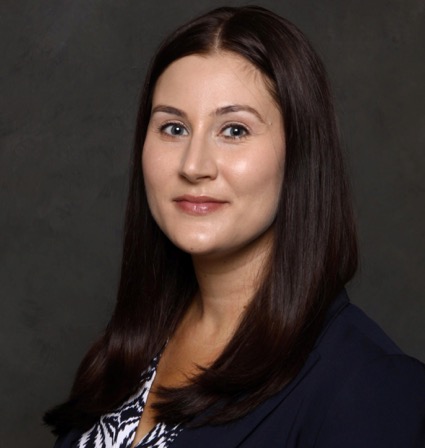International Criminal Court visit "a true privilege" for student
December 15, 2016
 Kirsten Stefanik, a fourth year PhD Candidate at Western Law, had the rare opportunity to attend the International Criminal Court's (ICC's) Assembly of States Parties in The Hague, Netherlands from Nov. 16-24.
Kirsten Stefanik, a fourth year PhD Candidate at Western Law, had the rare opportunity to attend the International Criminal Court's (ICC's) Assembly of States Parties in The Hague, Netherlands from Nov. 16-24.
She was among a small group of students chosen from Canadian universities to participate as part of a SSHRC Partnership Grant-funded project entitled “Strengthening Justice for International Crimes: A Canadian Partnership”.
Stefanik is working on the project along with Western Law Professor Valerie Oosterveld, her Ph.D. supervisor. The students participated at the ICC meetings and together prepared reports, wrote blogs and assisted organizational partners from the SSHRC project, specifically Advocats sans Frontières Canada (Lawyers without Borders Canada).
Stefanik says her experience of being in the midst of the decision-making about and political discussions on the ICC was fascinating.
“It was a tremendously valuable experience,” she says. “I saw the procedural functioning of an international legal institution, and gained insight into the more political aspects of states discussing, debating, and negotiating issues related to the Court and international criminal justice.”
Stefanik organized meetings between state delegations (e.g. Canada and Norway) and Advocats sans Frontières Canada and attended meetings with General Roméo Dallaire and Dr. Shelley Whitman from the Roméo Dallaire Child Soldiers Initiative.
The students visited the permanent premises of the International Criminal Court where they watched a portion of the Gbagbo and Blé Goudé case currently being tried.
“Witnessing the Court’s work in action was thrilling and being able to discuss the work of the Court with individuals who fill different roles at the Court provided insights that cannot gained from books,” she said. “It was a true privilege.”
Stefanik said she found it interesting to learn about the vast amount of work that goes on outside of the large plenary meetings.
“Behind the public plenaries, NGOs and States are working hard to strategize, advance agendas, and accomplish the work that needs to occur to continue work on the state-side of things, including amendments needed for the Rome Statute, improving state cooperation with the Court, and discussing state concerns about the Court.”
Stefanik completed her LLM at Western Law under the supervision of Professor Sara Seck.
In 2013 she was awarded the Governor General’s Gold Medal for her thesis, which examined the potential of using principles of international environmental law to improve protections for the environment and civilians during armed conflict.
Her current research explores why armed groups decide to either follow or violate the laws applicable to the armed conflicts in which they participate.
“Since the majority of modern armed conflicts involve non-state armed groups it is critical to understand how these groups operate in order to ensure existing protections for civilians are respected and to illuminate areas where development in the law is needed,” she explains.
Her work also involves examining organizational approaches such as the International Committee of the Red Cross and UN Peacekeeping to engaging armed groups on issues of civilian protection as well as gathering insights from former members of armed groups in Sierra Leone, Rwanda, and the Democratic Republic of Congo.
“There is a great deal of overlap between international humanitarian law and international criminal law. Many of the violations of law I explore in my research – war crimes, crimes against humanity, and genocide – are prosecuted at the ICC. As a result, the work of the ICC is directly relevant to my own research,” says Stefanik.
Stefanik believes that recent criticisms of the role of the ICC present an opportunity for the Court to strengthen.
“The treaty process to address climate change has faced many challenges, now the international community has the Paris Agreement. There is no reason that, in time, the current criticisms challenging the Court will not be seen as similar stumbling blocks along the path to a stronger international criminal justice regime.”
After completing her Ph.D., Stefanik hopes to work for an organization such as the International Committee of the Red Cross, Geneva Call, or Human Rights Watch where she can continue to do work in the field with combatants.
She would also like to keep the door open to pursue a career in academia.
“I would love to share my passion for international law with law students just being introduced to the field,” she says.






